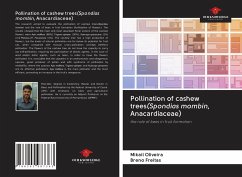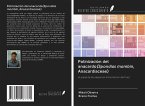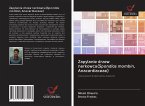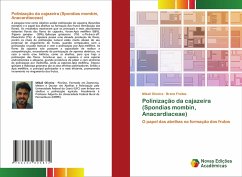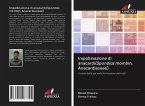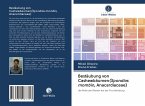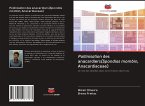The research aimed to evaluate the pollination of cashew trees(Spondias mombin) and the role of bees in fruit formation (fertilization of flowers). The results showed that the main and most abundant floral visitors of the cashew flowers were Apis mellifera (68%), Trigona spinipes (30%), Xylocopa grisescens (1%) and Plebeia aff. Flavocincta (1%). The cashew tree has a high production of flowers, but the levels of natural pollination are far below its potential for fruit set, when compared with manual cross-pollination and Apis mellifera pollination. The flowers of the cashew tree do not have the capacity to carry out self-pollination, requiring the participation of abiotic agents, in the case of wind and/or biotic agents, such as bees, in order to have the flowers pollinated. It is concluded that the cajazeira is an andromonoic and allogamous species, great producer of pollen and with syndrome of pollination by melitofilia, where the species Apis mellifera, Trigona spinipes and Xylocopa grisecens are its effective pollinators. Apis mellifera is the main pollinator and the most efficient, promoting an increase in the fruit's vengeance.
Hinweis: Dieser Artikel kann nur an eine deutsche Lieferadresse ausgeliefert werden.
Hinweis: Dieser Artikel kann nur an eine deutsche Lieferadresse ausgeliefert werden.

